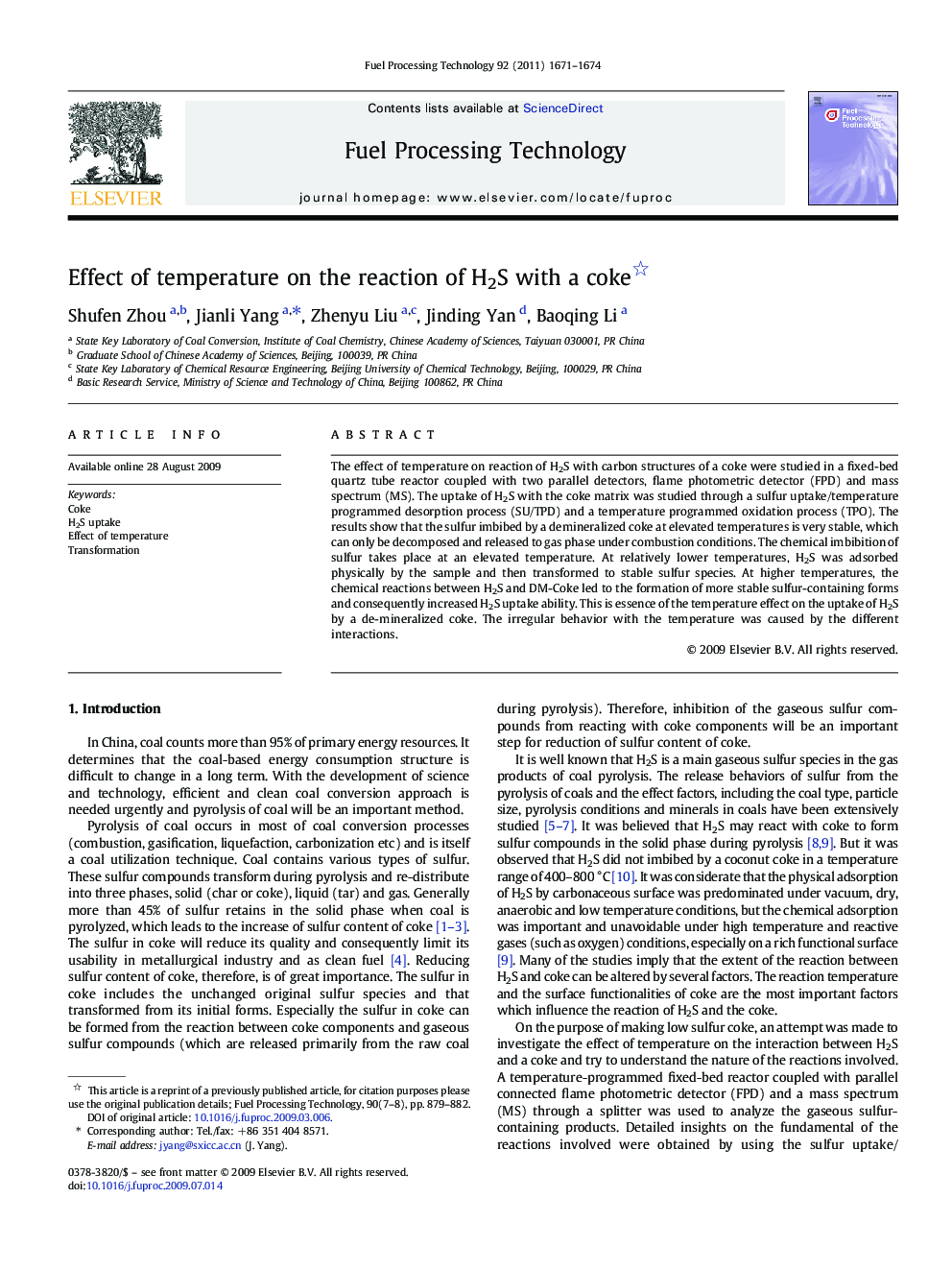| Article ID | Journal | Published Year | Pages | File Type |
|---|---|---|---|---|
| 210709 | Fuel Processing Technology | 2011 | 4 Pages |
The effect of temperature on reaction of H2S with carbon structures of a coke were studied in a fixed-bed quartz tube reactor coupled with two parallel detectors, flame photometric detector (FPD) and mass spectrum (MS). The uptake of H2S with the coke matrix was studied through a sulfur uptake/temperature programmed desorption process (SU/TPD) and a temperature programmed oxidation process (TPO). The results show that the sulfur imbibed by a demineralized coke at elevated temperatures is very stable, which can only be decomposed and released to gas phase under combustion conditions. The chemical imbibition of sulfur takes place at an elevated temperature. At relatively lower temperatures, H2S was adsorbed physically by the sample and then transformed to stable sulfur species. At higher temperatures, the chemical reactions between H2S and DM-Coke led to the formation of more stable sulfur-containing forms and consequently increased H2S uptake ability. This is essence of the temperature effect on the uptake of H2S by a de-mineralized coke. The irregular behavior with the temperature was caused by the different interactions.
